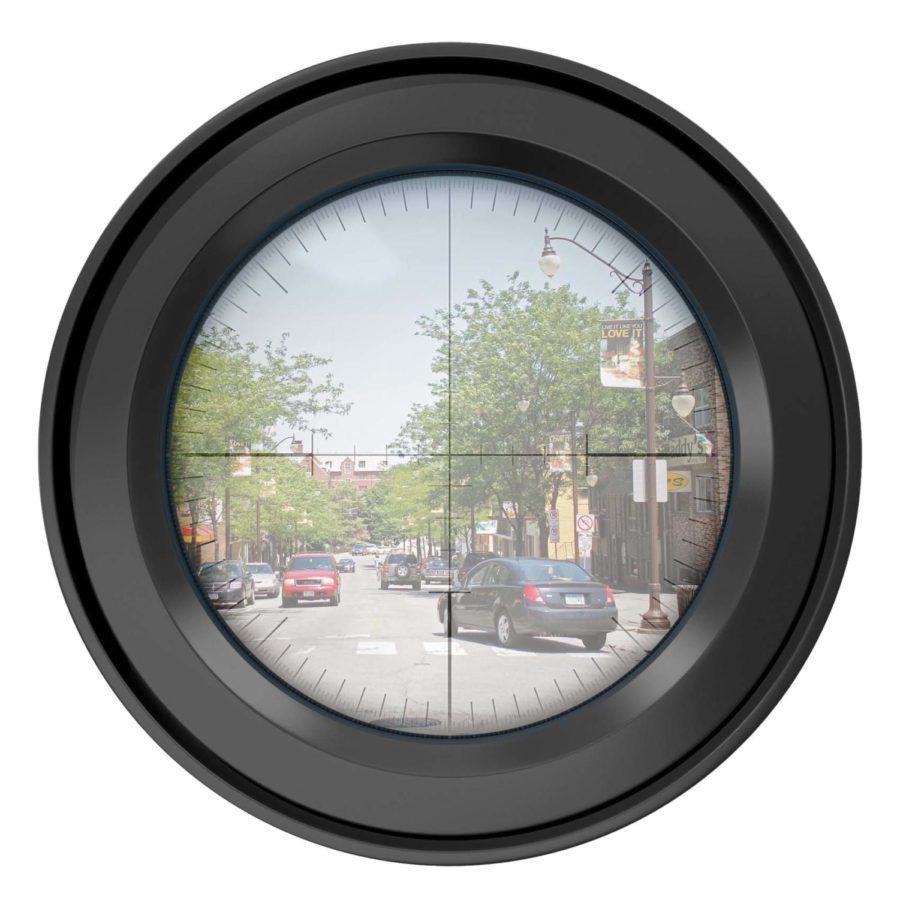Editorial: Camera controversy brews in Campustown
July 11, 2012
According to an Ames police report entitled “Cameras in Campustown,” dated June 26, the Ames City Council “directed staff to report on the suggestion that security cameras be installed on the Campustown Clock Tower.” The report claims the police “regularly partner with several businesses in Campustown [who] provide access to footage from cameras on their properties.”
Continuing, the report says the police department temporarily mounted cameras on Welch Avenue in order to monitor crowds during Veishea, and as a result, the cameras assisted police “in identifying a suspect in an assault case that occurred.”
Citing crime rates in Campustown, including 35 percent of Ames’ drug and alcohol crimes,7 percent of property crimes, 13 percent of assaults and violent crimes, and 12 percent of everything else, the police claim that they “would have the ability to review images from [the Welch] cameras in the event of [a crime].” Further, the report suggests that utilizing certain kinds of cameras, it would be possible for police “to control the camera’s motion remotely.”
And all of this at a cost to the Ames taxpayer of $8,000 to 16,000 per camera, depending on several options, plus $30,000 for new street lights so the cameras can see better. Perhaps most interestingly, though, is the fact the Ames police department “received two grants totaling $29,000 that were awarded specifically for surveillance equipment. Of this amount, $20,000 must be used by Sept. 30” and the rest by next year.
This is ridiculous. The police want to spend all that money because of a minor percentage of crimes? Give us a break. Let’s keep in mind the cops’ expensive little Veishea experiment only yielded a single assist on a simple assault case during Campustown’s most raucous day of the year. Big whoop.
Plus, we must regard with great suspicion any government agency who uses pressure to try to rush a project. One must wonder, given the lack of interest in installing cameras elsewhere like Main Street, if the city of Ames is sending the message yet again: “Students, we don’t like you.”
Bigger than all that though, the Supreme Court has ruled that while the Bill of Rights doesn’t specifically protect a right to privacy, privacy is nonetheless a penumbral constitutional right. Further, from over two centuries of jurisprudence, we also know that one’s rights follow the individual wherever they may be, even in public.
Indeed, the police may observe anything incriminating seen in plain view without a warrant, such as a person in public certainly is. But this doctrine is applied to investigators who are active participants in the crime solving or prevention process, which someone reviewing a video tape or sitting in a remote office and fishing for a crime certainly is not. The Supreme Court has also established the police must view the incriminating evidence or act inadvertently and without advanced technology.
Last we checked, high-def and Wi-Fi remote control cameras were advanced technology.
If the financial and legal arguments aren’t compelling though, consider this: Several states, such as Illinois, Colorado, Massachusetts and Maryland, have banned or attempted to ban citizens from video recording the police, based on statutes requiring all involved parties to consent to the recording. If it’s okay for the cops to record us, why can’t we record them?
Of course, there’s always the common sense argument that it doesn’t work; England has cameras everywhere, and their crime rates are the worst in Europe and worse in several categories than the United States, according to the European Commission’s last crime report in 2009.
Furthermore, all government documents — including video — are available to the public under the Freedom of Information Act. Having a bunch of video of you on Welch available to anyone doesn’t seem like a good idea.
Today’s uninformed citizens seem eager to give up their rights without a fight, because they have enjoyed them for so long without having to do anything for them; they’re easily forgotten. But we would be wise to heed the words of those great Americans who came before us, such as Ben Franklin who said: “Those who would give up essential liberty to purchase a little temporary safety deserve neither liberty nor safety.”
Fortunately, the Ames Police Department and City Council are just investigating the possibility, not actually planning to install the cameras at this time. However if citizens give in on this and don’t make their voices heard to their councilmen and -women, George Orwell will have had it right all along: “Big Brother is watching.”







